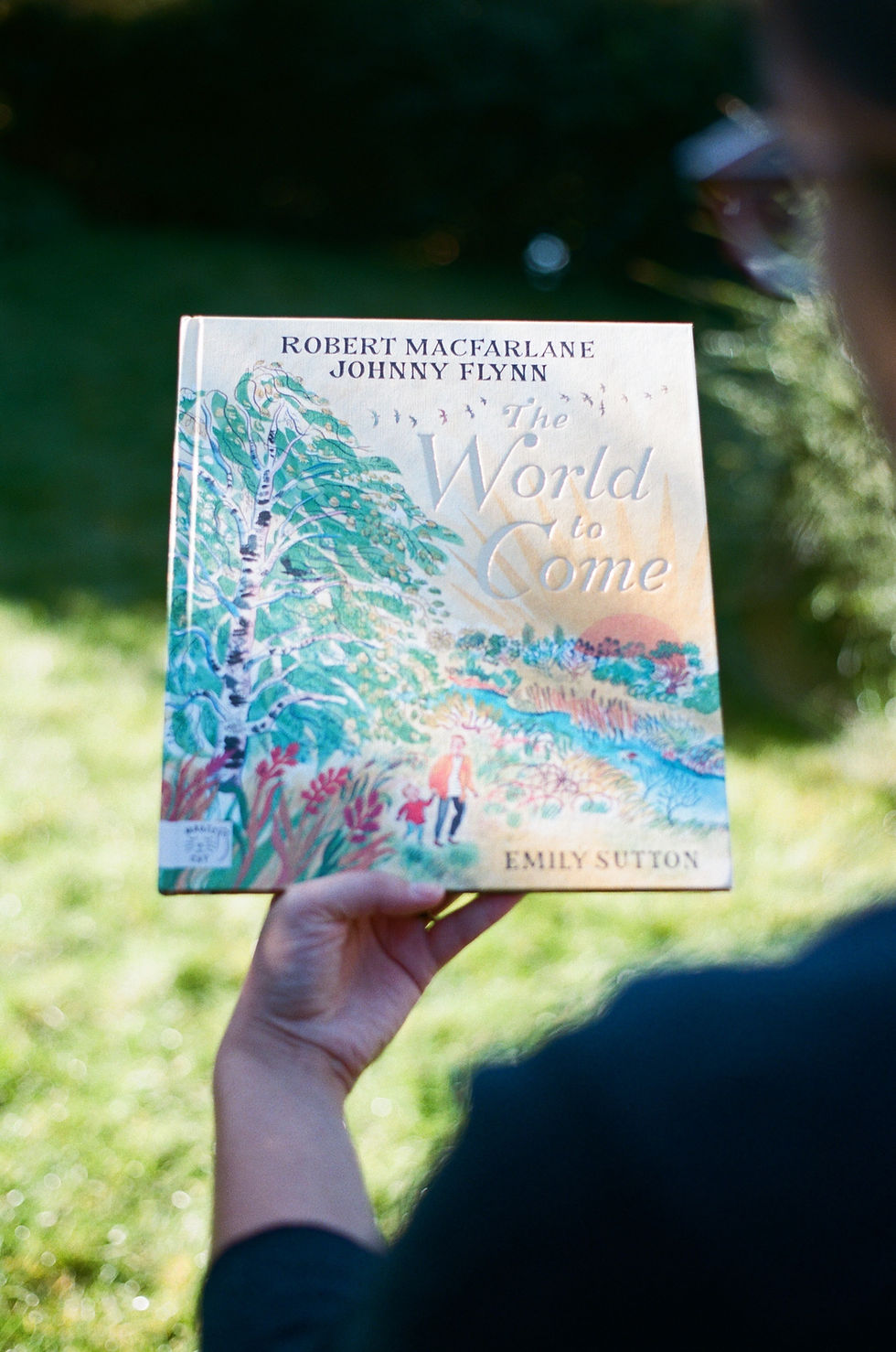The Pasture, Let it Run
- Angus D. Birditt
- Sep 1, 2023
- 4 min read
Explore Farm2Fork in this 'Stories within Our Isles'. Otherwise known as Greenway Farm, Farm2Fork is in the heart of Somerset and is run by farmer, Ollie White. Farm2Fork is Pasture for Life Certified, working to produce healthy food in a holistic, natural way. Article by writer and photographer, Angus D. Birditt.

On a very hot, mid-August morning, I met Ollie at Greenway Farm, just on the outskirts of Ilminister in Somerset. Ollie, a fourth-generation farmer, runs Farm2Fork, a mixed farm with Angus-Hereford cattle, chickens, turkeys, sheep and geese. His cattle and sheep are Pasture for Life Certified, feeding simply on grass from herb-enriched pastures, and nothing else. The chicken live in pens which are moved every 24-hours to fresh pasture, and like their free-roaming geese and turkeys, they benefit from a little organic grain.
I was at Farm2Fork to learn a little more about how Ollie farms, his inspiration, principles of farming, and the importance of narrating all of this to those who buy his produce.
"My initial inspiration for farming in this regenerative way came through reading various books coming out of North America like You Can Farm by Joel Salatin and Regenerative Agriculture by Richard Perkins. In their different ways, these books really changed my outlook on how to farm, putting the health of the soil and pasture at the very forefront of everything.
"Look at how we farm our chickens. They are out all the time, in our specially designed pens, which are mobile and moved every day. The pens themselves are designed from my readings, but I have also used my own knowledge to adjust them (pitched the roof, raised one side) to fit our local terrain, so the chickens have enough space, airflow and perching area in order to have as natural and happy life as possible. We also have two guardian dogs to keep them safe at night.
"The main thing I would tell you is that we manage the farm in accordance to what the pasture needs. We always look at what each field needs first, then we use the animals to help that cycle of nutrients. For example, when the pasture goes to seed, it needs to be grazed to continue that carbon cycle, so we use the animals as a tool to do that. If you’re always thinking about the pasture, you can manage your animals well.
"Our biggest challenge is to take our customers along that journey, telling the story of exactly how and why we farm to produce the best possible nutrient-dense food for people and planet. By selling directly to our customers [they have an on-site honesty system in their farm shop where you can purchase their produce from their chest freezers], there are so many benefits! Firstly, we can get more value for our product, which means we are being rewarded for how we farm, putting the environment first.
"And by obtaining a greater value for our product, we aren't forced to stock large numbers of animals, which would put the farm under unnecessary pressure. Many farms are forced into selling at a marginal cost, which can put pressure on the pasture.
"It's especially relevant at times like this in hot, drought weather conditions. Here at Greenway Farm, we have less animals so can manage in a way that allows the grass to get ahead of us. By letting the grass cover grow a lot in spring, it gives us a bank of grass in the summer, and say if we hit a drought like we are now, we can slow down the rotation of the animals from a 60-day rotation to a 90-day rotation. Slowing the rotation helps the fields recover and gives us farmers the opportunity to bring them round for a second bite as the animals haven't eaten it all. You'll find a lot of farmers will increase productivity but that sometimes doesn’t give you resilience for any fluctuation in a drought like this. We also outwinter our cattle on a 120-day rotation during the dormant season, a time to take stock of our levels when the grass isn’t growing.
"But all of this is only made possible because we sell our produce frozen. Everything we do is seasonal so we stockpile our produce - and our customers thankfully realise that it's not possible to have fresh produce like this all year round. And by freezing our produce, we create no waste, we can cope with any demands, and it solves the problem of freezing the meat as many do when they get home!"
Ollie is truly passionate about farming his local ecosystem as nature intended with a variety of animals to create a holistic system. He is observant and sensitive to both the land and his animals. Community, too, is a big part of the farm. Ollie tells me, "Farms can often be a lonely place, so it’s nice to welcome in WWOOFers onto the farm and other local farmers to help in with the farming and create that sense of community, that's really important for us.” Read more about Farm2Fork here.
Words & Photographs by Angus D. Birditt | @ourisles
.png)




.jpg)


.jpg)





















コメント